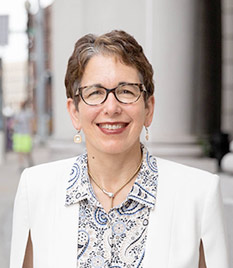Today, we honor the life and reflect on the legacy of Dr. Martin Luther King Jr., whose nonviolent pursuit of racial justice and equality awakened a nation and changed the world. But we know now more than ever that we have a long road ahead to rid our society of racial injustice and inequality. Especially clear is that systemic racism continues throughout the sectors that make up our communal life: business, law, politics, health, entertainment, education and in many other areas.
This year honoring Dr. King feels more important than ever and yet insufficient. The holiday takes place against a backdrop of crises, including an enduring and tragic pandemic that has further exposed longstanding health inequities and the disproportional effects of the virus on the Black community and other racial and ethnic groups. The holiday comes after a year when law enforcement killings of unarmed Black people have caused enormous pain in this nation and shined a light on the pervasive racism that continues to exist. It comes at a time when the nation is increasingly polarized following an assault on the U.S. Capitol and on democracy itself.
At the same time, these crises have made systemic racism more visible, not just to those who have suffered from its effects, but to all of us. As these crises further expose the structural inequities in our society, my hope is that greater visibility of the problem will lead more of us to stand up and confront it.
So this year I hope you will join me in celebrating Dr. King’s legacy and at the same time remembering that there is so much still to be done. As we prepare to swear into office the first Black woman and individual of South-Asian descent to the position of Vice President of the United States on Wednesday, we can be reminded that even in the midst of division and violence, we will find a way to continue to make progress.

Marisa J. Kelly
President





Leave A Comment
I welcome two-way communication with the Suffolk Community. Faculty, staff, and students are encouraged to respond to posts, exchange ideas, share opinions, and offer feedback by logging in below using your regular Suffolk login (without "@suffolk.edu"). Comments should be made in accordance with standards of civil discourse, and we reserve the right to delete derogatory or inappropriate comments. log in